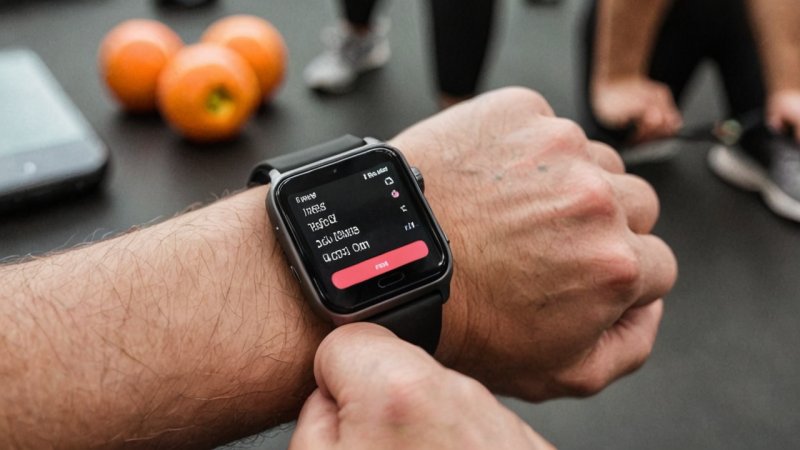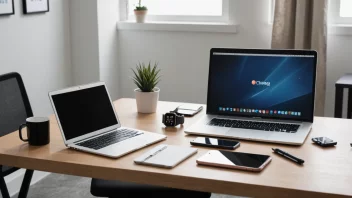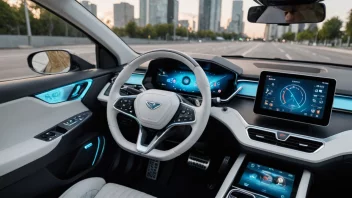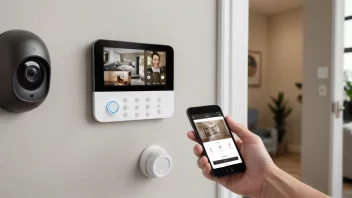What types of fitness tracking devices are available?
Fitness tracking devices come in various forms, including:
- Wearable devices: Smartwatches and fitness bands that monitor your activity levels, heart rate, and sleep patterns.
- Smartphone apps: Applications that utilize your phone's sensors to track workouts, steps, and dietary habits.
- Heart rate monitors: Devices that specifically measure your heart rate during exercise, often worn on the chest or wrist.
- Smart scales: Scales that provide insights into body composition, including weight, body fat percentage, and muscle mass.
How do I choose the right fitness tracker for my needs?
Selecting the right fitness tracker depends on your personal fitness goals and preferences. Consider the following:
- Activity Level: If you're a casual walker, a basic pedometer may suffice, while serious athletes may benefit from advanced metrics.
- Features: Look for features like GPS, heart rate monitoring, sleep tracking, and smartphone notifications based on your needs.
- Compatibility: Ensure that the device is compatible with your smartphone and any other fitness apps you use.
- Battery Life: Check the battery life to avoid frequent recharging interruptions.
Can I sync fitness trackers with other devices?
Yes, most fitness trackers can sync with various devices, including:
- Smartphones: Most trackers sync with mobile apps to provide detailed insights into your fitness data.
- Smart scales: Some fitness trackers can sync data with smart scales for comprehensive body composition tracking.
- Health platforms: Many devices can connect to platforms like Apple Health, Google Fit, or MyFitnessPal to aggregate data.
How accurate are fitness trackers?
The accuracy of fitness trackers can vary based on several factors:
- Type of Activity: Some activities are tracked more accurately than others; for example, walking is usually more accurate than swimming.
- Device Quality: Higher-end devices generally provide more reliable data than budget models.
- Wear Location: Where you wear the device (wrist vs. chest) can impact heart rate and calorie burn measurements.
What are some tips for maximizing the use of a fitness tracker?
To get the most out of your fitness tracker, consider these tips:
- Set Goals: Use the tracker to set achievable fitness goals and track your progress over time.
- Stay Consistent: Wear the tracker regularly to gather accurate data and establish patterns in your activity.
- Analyze Data: Regularly review your data to identify trends and areas for improvement.
- Engage with Community: Some apps offer community features; engage with others for motivation and advice.
Are there fitness trackers designed specifically for certain activities?
Yes, many fitness trackers are tailored for specific activities:
- Running Trackers: Devices that focus on pace, distance, and route mapping.
- Cycling Trackers: Track speed, cadence, and elevation for cyclists.
- Swim Trackers: Waterproof devices that track laps, strokes, and swim efficiency.
- Multi-sport Trackers: Versatile devices that support various activities, offering detailed metrics for each.
How can fitness trackers help with motivation?
Fitness trackers can enhance motivation in several ways:
- Visual Progress: Seeing your daily or weekly progress can encourage you to stay active.
- Challenges: Many trackers and apps offer challenges to compete with friends or meet personal goals.
- Reminders: Set reminders to move or workout, helping to embed fitness into your daily routine.
What should I consider when using fitness tech for weight loss?
When using fitness tech for weight loss, consider these points:
- Caloric Tracking: Monitor your caloric intake alongside your activity to maintain a balanced approach.
- Consistency: Regularly track your meals and workouts to stay on course with your goals.
- Adaptability: Be prepared to adjust your goals and strategies based on your progress and data insights.
Final Thoughts
Fitness trackers are valuable tools that can help you monitor and enhance your fitness journey. By understanding the various devices available, their functionalities, and how to use them effectively, you can tailor your fitness experience to meet your personal goals. Embrace the technology, stay motivated, and enjoy a healthier lifestyle.






